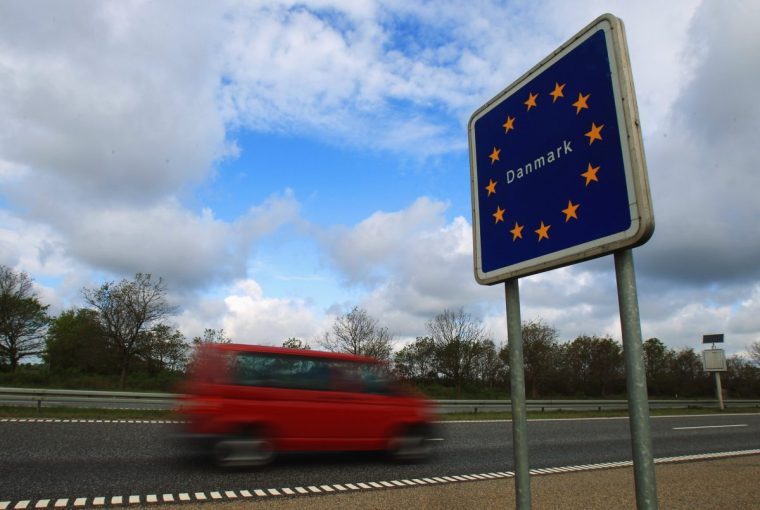With the Home Office expected to outline major reforms to asylum policy next week, here’s what three of the UK’s closest allies have done
The Government is expected to announce radical reforms next week aimed at making the UK a less attractive destination for asylum seekers.
Shabana Mahmood is set to outline a new approach to the immigration system modelled on changes implemented in Denmark, having dispatched officials to the country last month to study its policies.
Denmark deports 95 per cent of failed asylum seekers – a much higher proportion than the UK – and as of May 2025, recorded its lowest level of asylum applications in 40 years.
Here’s how the UK’s asylum policies compare to those of Denmark and other countries.
Denmark
Like the UK, Denmark is a signatory to the 1951 Refugee Convention, which prohibits states from returning refugees to countries where they face persecution.
Previously, refugees in Denmark were allowed to stay in the country for between five and seven years, after which their residence permits automatically became permanent.
But in 2015, responding to the rising number of refugees fleeing conflicts in the Middle East and Africa, the government introduced sweeping reforms.
People who succeed in their asylum application are now only allowed to remain in the country temporarily until the Danish government deems that their home country is safe, after which they can be returned.

In the UK, a grant of refugee status lasts for five years, after which an individual is eligible to apply for Indefinite Leave to Remain. This can be refused, but they retain the right to appeal if there are human rights concerns.
Denmark also has tighter rules on family reunion compared with the UK. Refugees and their spouses must be 24 or over to apply, the incoming partner must pay a guarantee, and both must pass a language test.
Refugees living in what Danish law describes as “parallel societies – housing estates where more than half the residents are ‘non-Western’” – are ineligible for family reunion. The law also allows the state to sell off or demolish apartment blocks in so-called parallel societies if there are high crime or unemployment rates.
In September, the UK Home Office suspended new applications under the Refugee Family Reunion scheme ahead of Mahmood’s expected overhaul.
Under the current rules, spouses, partners and dependants under 18 are allowed to come to the UK without fulfilling income and English-language tests that apply to other migrants.
France
Earlier this year, the UK and France signed a joint agreement aimed at reducing small boat crossings.
Under the “one in one out” scheme, France agreed to take back migrants who travelled to the UK illegally and had their asylum claim withdrawn or declared inadmissible.
For each person returned to France, the UK accepts someone with a case for protection as a refugee who has not attempted to cross the Channel. So far, 94 people have been returned to France, with 57 sent to the UK in exchange.
People who are sent back to France from the UK are not allowed to claim asylum there and do not qualify for free accommodation beyond a shelter.
France can deport these failed asylum seekers to the first EU country they entered under the Dublin agreement. The UK has not been a part of the agreement since Brexit, leaving it unable to automatically return failed asylum seekers to European countries.

In France, asylum seekers with a valid claim will either be granted full refugee status or what is known as subsidiary protection.
Refugee status, granted where an individual faces persecution based on their identity, gives them a 10-year residence permit, which is renewed automatically. Subsidiary protection is granted where individuals face a risk of serious harm due to an armed conflict. It starts with a four-year permit that can be renewed, depending on the situation in their home country.
France also operates a family reunion policy, covering spouses or partners and any children under the age of 19 shared by the couple. Minors who are granted refugee status can also apply for their parents to join them.
United States
Unlike the UK and France, the United States was not a signatory to the 1951 Refugee Convention; however, it adopted the same framework through domestic legislation. Under the 1980 Refugee Act, the state was obliged to offer protection to individuals fleeing persecution, regardless of their manner of entry to the country.
This changed in January 2025, when Donald Trump signed an executive order suspending the US Refugee Admissions Programme.
New policies have closed off access to ports of entry for asylum seekers and given officials legal authority to return individuals to Mexico without placing them in removal proceedings, blocking them from seeking asylum.
Last month, the Trump administration announced that the number of refugees admitted to the US over the coming year would be limited to 7,500, with priority given to white South Africans.
It brings the cap to a record low, down from the previous annual limit of 125,000 set by former President Joe Biden.
